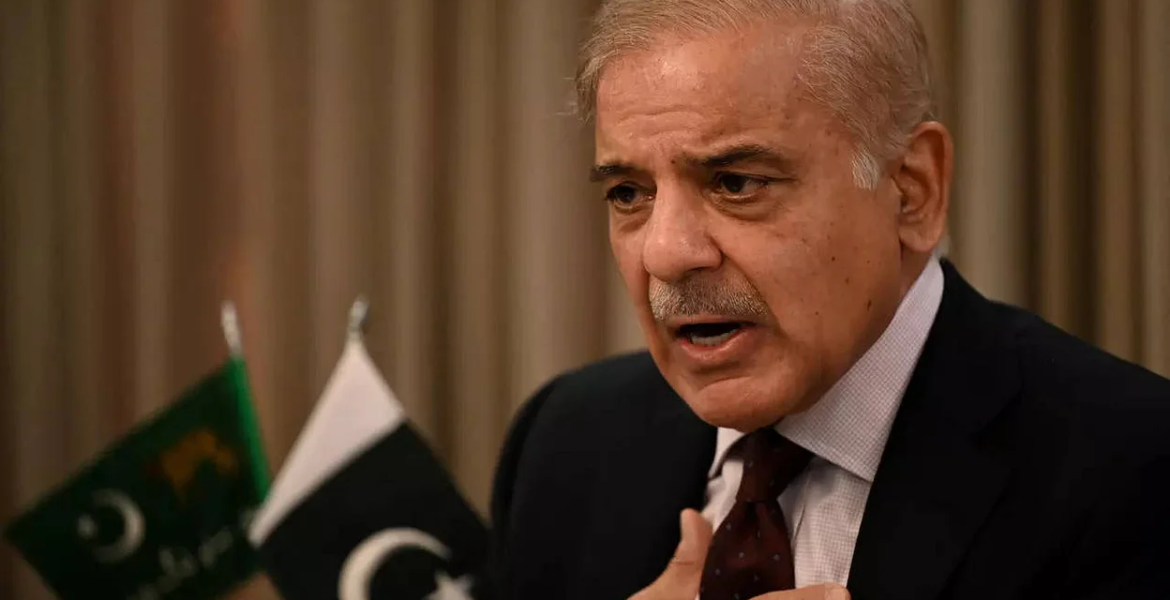Pakistan has become a textbook lesson in the political economy of how nations that rear extremism, indulge in state-sponsored terrorism, have no growth and development strategy and have utter disregard for the welfare of their common citizens, eventually collapse.
The current economic crisis in Pakistan is a culmination of decades of its faulty policies. It has become a state at war with itself. By supporting and patronising extremism and militancy in the name of jihad, it has hardly ever focused on long-term economic growth, and instead showcased short-sightedness in waging a war, direct or proxy with its neighbour, reported Asian Lite.
Also Read| Pakistan economic crisis: IMF bailout conditions 'beyond imagination' - Pak PM
With bankruptcy looming around, Pakistan is seeking a $7 billion bailout package from the IMF to prevent the collapse of the state seeking help in a do-or-die situation. While the IMF delegation is visiting Pakistan, tough times are ahead for Pakistan. To secure this loan, Pakistan will have to undertake very unpopular austerity measures including cutting subsidies drastically and bringing in market reforms, the report.
The report quoted a statement issued by rating agency Moody's which highlighted "country's ability to afford its own debt is one of the weakest among the sovereigns."
The debt servicing obligations in Pakistan is USD 15.5 billion in 2023. The report claimed that the interest payment obligation of Pakistan alone is half the country's revenue this year which is 25 per cent higher than in 2022. The condition is such that the external debt rose from USD 66 billion in FY17 to over USD 100 billion today, according to the Asian Lite report.
Also Read: Pakistan unlikely to host Asia Cup 2023 as UAE emerges as alternate venue; ACC to finalise decision in March
The United Nations Development Programme (UNDP) report was cited by Asian Lite which said that Pakistan is facing a debt of over USD 250 billion, much more than the carrying capacity of the Pakistani state, wherein it has to pay back a debt of USD 33 billion by 2023. The continued slump of the Pakistani Rupee (PKR), reaching a record low of 267.48 per dollar, is further worsening the crisis.
This major economic setback is pushing millions of people from the country's population into poverty and starvation and disabling the country from importing basic and essential items. The country's forex reserves are depleting at an alarming pace Now it has just USD 3.67 billion, the lowest since 2014 which can cover its imports for just three weeks.
The crisis in Pakistan worsened due to a combination of many factors including its faltering GDP growth, global economic slowdown, rising global inflation owing to the Ukraine war, plunging Pakistani rupee making imports costlier, compounded by a catastrophic flood which caused massive destruction affecting over 33 million people, the report by Asian Lite claimed.
The report claimed that the current slump in the economy of the country is because of its own. Due to the culmination of decades of faulty policies and supporting extremism and terrorism. It has hardly ever focused on long-term economic growth and showcased short-sightedness in waging a war, direct or proxy, with India.
The rise of terrorist groups such as Tehreek-e-Taliban Pakistan, which was backed by Pakistan's army and intelligence agency ISI, is now waging war against the Pakistani state itself killing innocent civilians and law enforcers.
The current economic crisis is attributed to its myopic policy decision resulting in excessive spending on non-developmental and economically unviable projects.
Pakistan was not bringing structural and economic reforms in the country's fiscal and monetary policies, and the economy has also been filled with corruption and nepotism.


